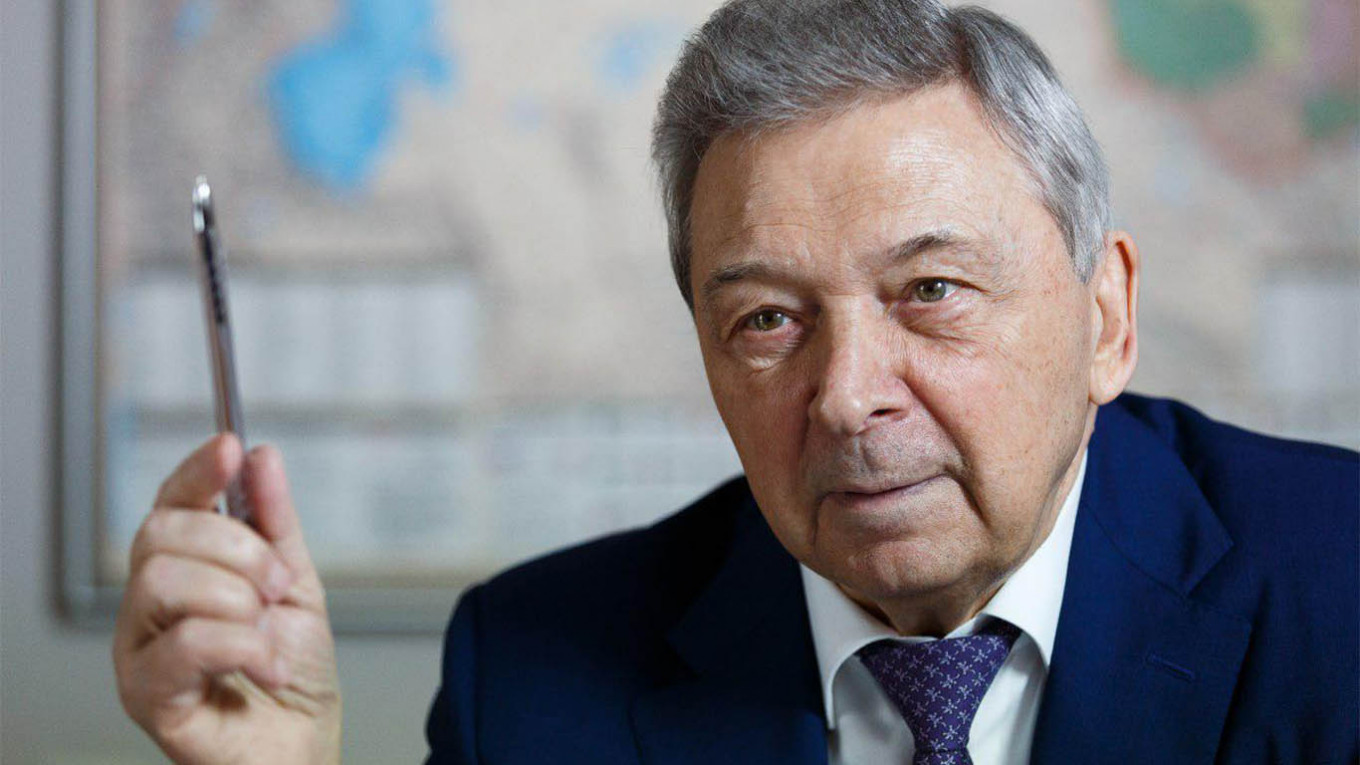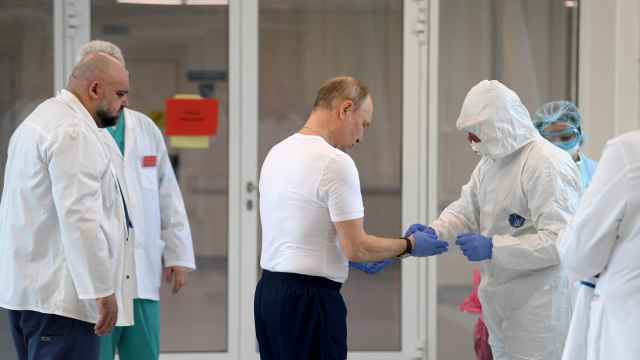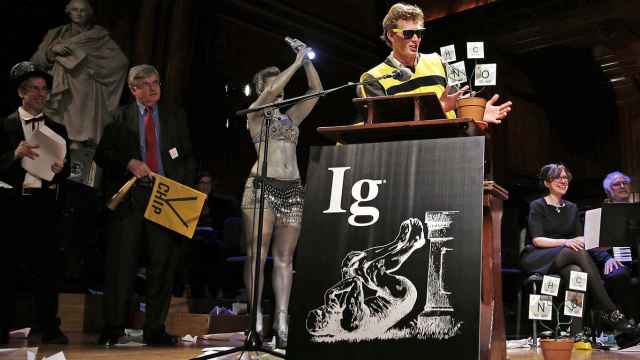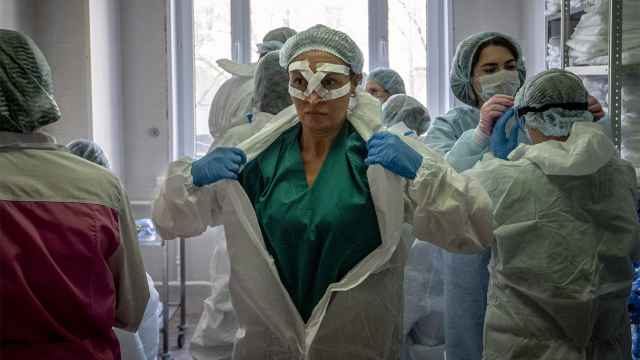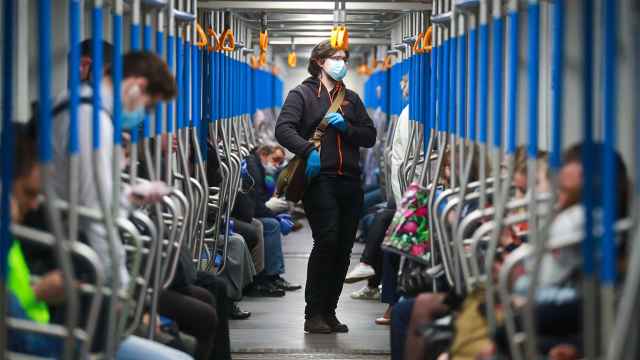A leading endocrinologist who praised President Vladimir Putin’s efforts in combating the deadly coronavirus pandemic Tuesday was a onetime research adviser to Putin’s rumored daughter, according to Russian media.
Ivan Dedov, president of the Health Ministry’s national endocrinology center and one of nine experts invited to consult Putin on the virus Tuesday, commended Putin for “balanced” policies and “heartfelt” public addresses.
“I’m absolutely convinced that Russia will come out of this very difficult situation with minimal losses. The key to this belief is the government’s well-balanced and well-calculated policy,” Dedov said.
“Vladimir Vladimirovich [Putin], I can hear your pain for the losses, for the state. But [your] very proper and tactful tone of truthful conversation [with the public] resonates with our hearts,” he said, according to a Kremlin transcript.
Dedov was the research supervisor of Maria Vorontsova, who is widely rumored to be Putin’s eldest daughter, at the Moscow State University in 2011, according to her 2016 profile in Russian media.
Vorontsova went on to pursue postgraduate studies at Dedov’s endocrinology institute, the independent Russian news magazine The New Times reported almost a decade ago.
In 2011, Dedov ran and won an uncontested race for the presidency of Russia’s Academy of Medical Sciences, which was absorbed into the Academy of Sciences two years later. In 2012, his son Dmitry Dedov was appointed as a European Court of Human Rights (ECHR) judge in France.
The science platform Researchgate lists Dedov as the co-author of more than 600 research papers dating back to 1983.
Little is publicly known about Vorontsova, who has never been officially confirmed as Putin’s daughter.
Putin has repeatedly dodged questions to confirm or deny reports about his familial relations to Vorontsova and Katerina Tikhonova, another woman reported to be his daughter.
A Message from The Moscow Times:
Dear readers,
We are facing unprecedented challenges. Russia's Prosecutor General's Office has designated The Moscow Times as an "undesirable" organization, criminalizing our work and putting our staff at risk of prosecution. This follows our earlier unjust labeling as a "foreign agent."
These actions are direct attempts to silence independent journalism in Russia. The authorities claim our work "discredits the decisions of the Russian leadership." We see things differently: we strive to provide accurate, unbiased reporting on Russia.
We, the journalists of The Moscow Times, refuse to be silenced. But to continue our work, we need your help.
Your support, no matter how small, makes a world of difference. If you can, please support us monthly starting from just $2. It's quick to set up, and every contribution makes a significant impact.
By supporting The Moscow Times, you're defending open, independent journalism in the face of repression. Thank you for standing with us.
Remind me later.


